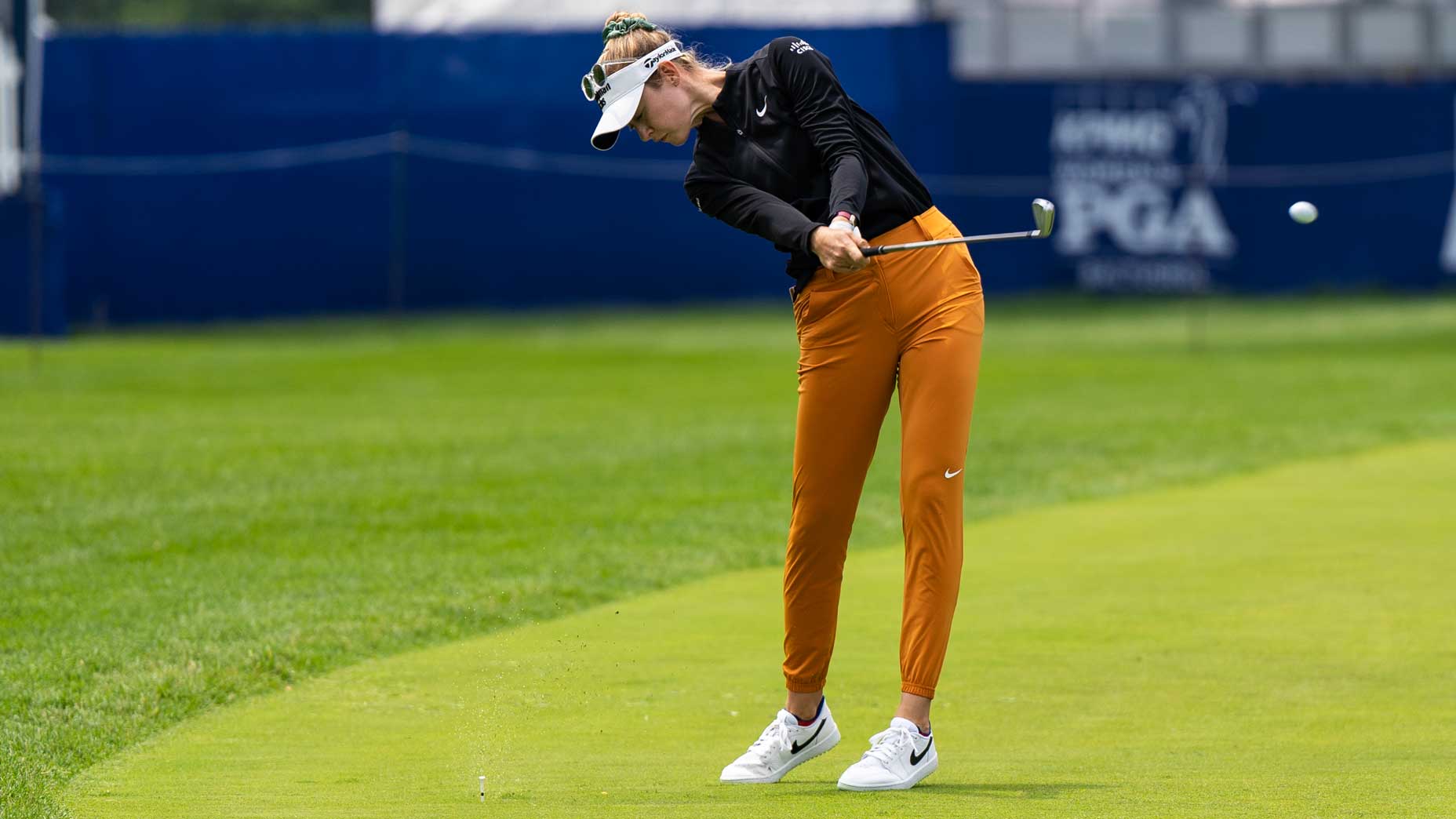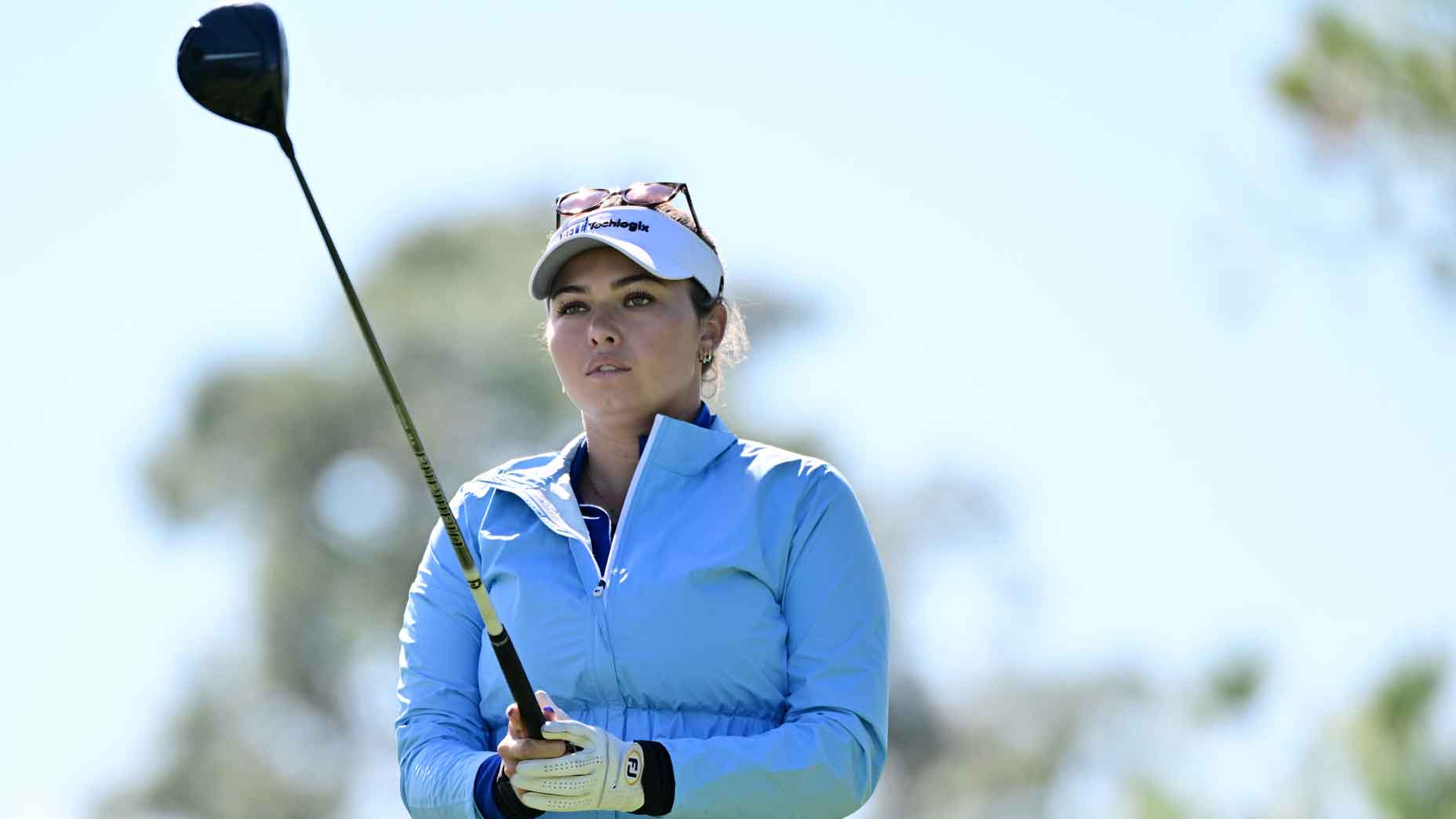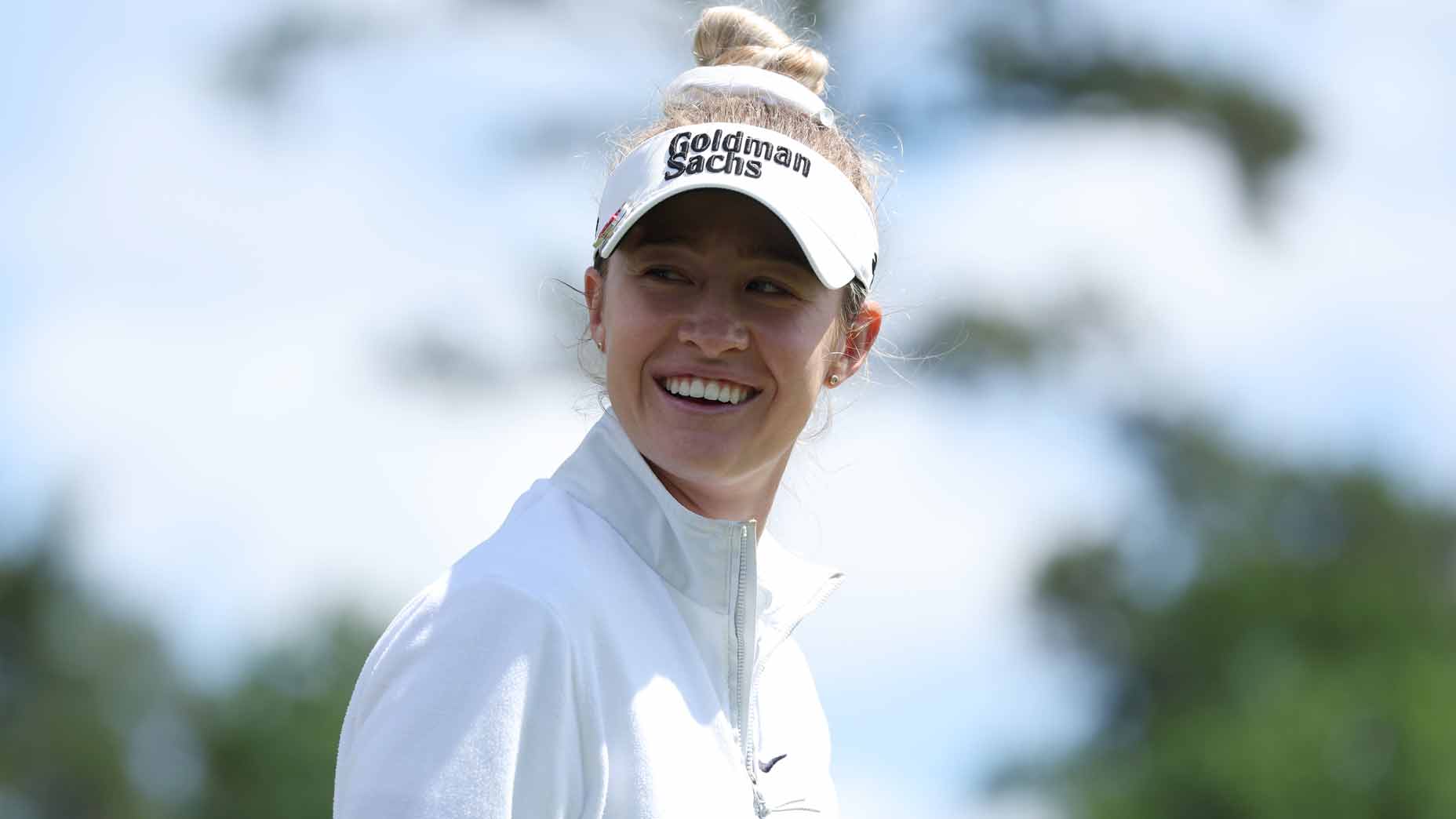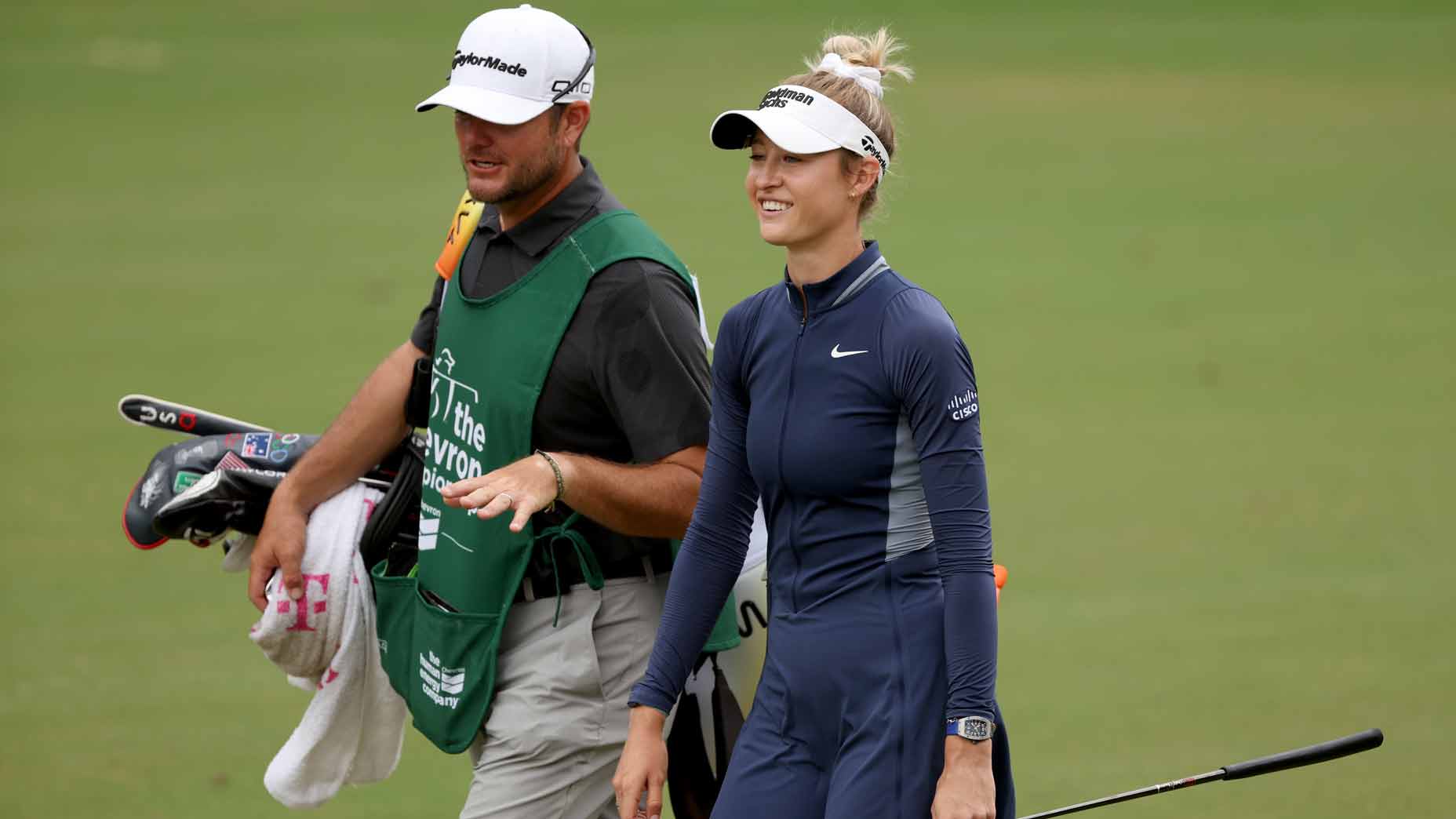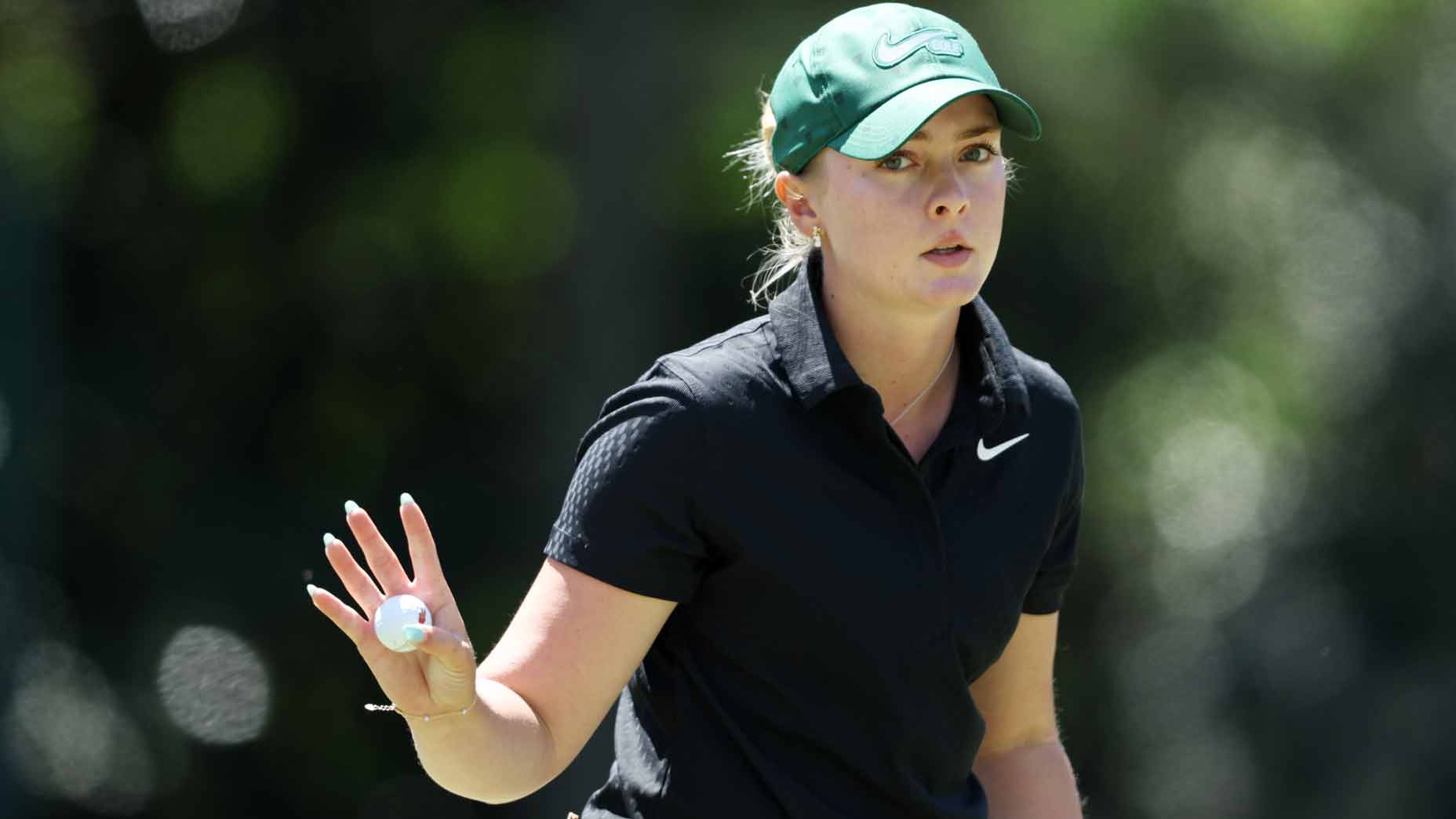How advanced analytics (like strokes gained) are changing women’s golf

The LPGA Tour partnered with accounting firm KPMG two years ago to bring advanced analytics to women's golf.
Getty Images
Advanced analytics has taken over sports in the past decade. From the hardwood to the diamond (and beyond), number-crunchers have reshaped the way sports are played at the highest level. The greatest emphasis has been on efficiency and it’s made everything from training to gameplay a science more than an art.
The same is true in professional golf. With data like smash factor and strokes gained available to the top players in the world, the game has changed measurably in the current era.
However, until recently, that luxury was not available in the women’s game as strokes gained were only available on the PGA Tour. The ladies on the LPGA Tour only had access to rudimentary stats.
That changed two years ago when the LPGA Tour partnered with accounting firm KPMG to bring advanced analytics to the women’s game.
“There’s a disparity between what the men enjoy in terms of data and analytics and what the women have,” KPMG CEO Paul Knopp said at the time. “We thought that was not right. We wanted to see a more equitable world when it comes to the game of golf.”
The KPMG Performance Insights platform was launched at the 2021 Women’s PGA Championship, and this week they celebrate two years since the initial rollout. In that time, KPMG has collected 1.5 million shots from LPGA pros, giving players crucial info needed to diagnose flaws in their games and improve performance.
“It’s been really gratifying to see what that can do for the LPGA,” said Shawn Quill, Managing Director, KPMG Sports. “It’s been really cool to see how the players interact with the data and how it’s been helpful to them in honing and refining their game.”
With advanced analytics like strokes gained available to LPGA pros, they’ve been able to get a whole perspective on the strengths and weaknesses in their games. With the ability to compare their stats against other pros, they’re able to see where they are gaining — and losing — shots against their peers on a weekly basis.
America Solheim Cup captain Stacy Lewis has been using these insights to prepare for this fall’s biennial team competition as well. With KPMG giving her access to strokes gained data for potential Solheim Cuppers, she’s using analytics to inform her selections and pairing as much as she can.
“You can go all the way to down to what type of player is going to play best on the golf course,” Lewis said last winter. “We’re going to use [analytics] as much as we can.”
Access to these stats has also changed the way the women’s game is covered by the media and consumed by fans. With robust data available to scribes and broadcasters, it’s easier to contextualize performance and tell richer stories about the best golfers in the world.
“It’s provided a really interesting backdrop to women’s golf that has always been needed,” Quill said. “Numbers are so huge in sports. They really bring alive the performance of the athlete. To be able to have that for the LPGA Tour has been great to see.”
Strokes-gained data is not solely reserved for those in the inner circles of pro golf anymore, either. This week, KPMG and the LPGA Tour announced the launch of a new web portal, which provides fans access to the same data the pros have.
“For many years, men’s professional golf has provided fans access to advanced shot-level data,” said LPGA Commissioner Mollie Marcoux Samaan. “The KPMG Performance Insights program has been a gamechanger for the LPGA Tour and our tremendous athletes. KPMG is helping us level the playing field, supporting our players in reaching peak performance and enhancing how coaches, fans, and the media, analyze and experience the game.”
Just two years removed from the launch of the program, however, the program has only scratched the surface of possibilities. As the program continues, expect to see even more robust use of the KPMG Performance Insights program from players, media and fans.
“I think we’re just getting started,” Quill said. “The more data you collect, the more insights you can gain. I think it brings to life the quality of the competition. And it enables comparison, both historical and current, which will be very interesting.”

